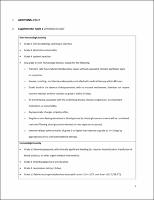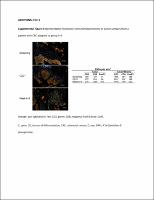| dc.contributor | Vall d'Hebron Barcelona Hospital Campus |
| dc.contributor.author | Luke, Jason |
| dc.contributor.author | Fakih, Marwan |
| dc.contributor.author | Schneider, Charles |
| dc.contributor.author | Chiorean, E. Gabriela |
| dc.contributor.author | Bendell, Johanna |
| dc.contributor.author | Kristeleit, Rebecca |
| dc.contributor.author | Brana, Irene |
| dc.date.accessioned | 2023-06-21T11:31:28Z |
| dc.date.available | 2023-06-21T11:31:28Z |
| dc.date.issued | 2023-06 |
| dc.identifier.citation | Luke JJ, Fakih M, Schneider C, Chiorean EG, Bendell J, Kristeleit R, et al. Phase I/II sequencing study of azacitidine, epacadostat, and pembrolizumab in advanced solid tumors. Br J Cancer. 2023 Jun;128:2227–35. |
| dc.identifier.issn | 1532-1827 |
| dc.identifier.uri | https://hdl.handle.net/11351/9837 |
| dc.description | Epigenética del cáncer; Inmunoterapia contra el cáncer |
| dc.language.iso | eng |
| dc.publisher | Springer Nature |
| dc.relation.ispartofseries | British Journal of Cancer;128 |
| dc.rights | Attribution 4.0 International |
| dc.rights.uri | http://creativecommons.org/licenses/by/4.0/ |
| dc.source | Scientia |
| dc.subject | Càncer - Tractament |
| dc.subject | Càncer - Aspectes genètics |
| dc.subject | Medicaments antineoplàstics - Ús terapèutic |
| dc.subject.mesh | Neoplasms |
| dc.subject.mesh | /drug therapy |
| dc.subject.mesh | Antineoplastic Agents |
| dc.subject.mesh | /therapeutic use |
| dc.title | Phase I/II sequencing study of azacitidine, epacadostat, and pembrolizumab in advanced solid tumors |
| dc.type | info:eu-repo/semantics/article |
| dc.identifier.doi | 10.1038/s41416-023-02267-1 |
| dc.subject.decs | neoplasias |
| dc.subject.decs | /farmacoterapia |
| dc.subject.decs | antineoplásicos |
| dc.subject.decs | /uso terapéutico |
| dc.relation.publishversion | https://doi.org/10.1038/s41416-023-02267-1 |
| dc.type.version | info:eu-repo/semantics/publishedVersion |
| dc.audience | Professionals |
| dc.contributor.organismes | Institut Català de la Salut |
| dc.contributor.authoraffiliation | [Luke JJ] UPMC Hillman Cancer Center, Pittsburgh, PA, USA. [Fakih M] City of Hope Comprehensive Cancer Center, Duarte, CA, USA. [Schneider C] Abramson Cancer Center, University of Pennsylvania, Philadelphia, PA, USA. [Chiorean EG] University of Washington School of Medicine, Fred Hutchinson Cancer Research Center, Seattle, WA, USA. [Bendell J] Sarah Cannon Research Institute/Tennessee Oncology, Nashville, TN, USA. [Kristeleit R] Guy’s and St. Thomas’ NHS Foundation Trust, London, UK. [Kurzrock R] University of California San Diego School of Medicine, La Jolla, CA, USA. [Blagden SP] Early Phase Clinical Trials Unit, University of Oxford, Oxford, England, UK. [Brana I] Vall d’Hebron Hospital Universitari, Barcelona, Spain. Vall d’Hebron Institute of Oncology (VHIO), Barcelona, Spain |
| dc.identifier.pmid | 37087488 |
| dc.identifier.wos | 000973358600001 |
| dc.rights.accessrights | info:eu-repo/semantics/openAccess |

 Área privada
Área privada Contacto
Contacto










